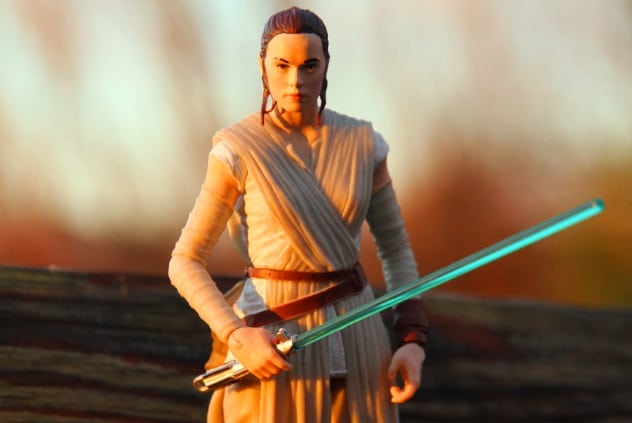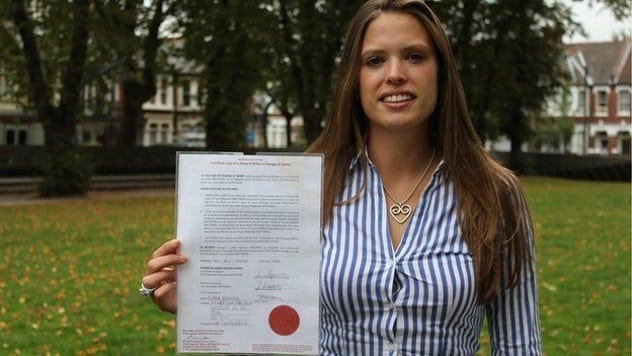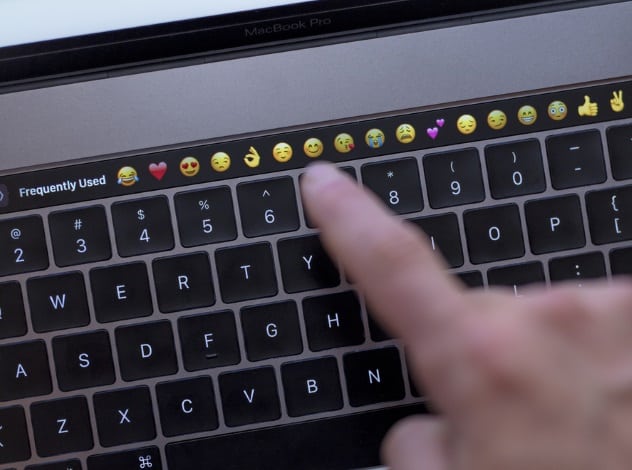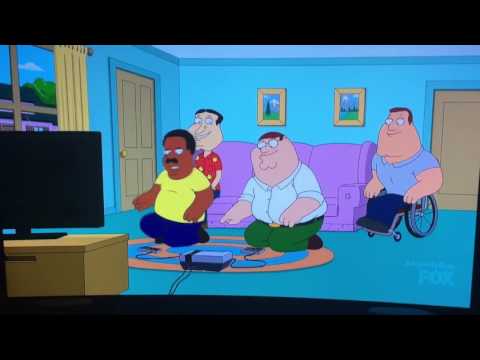The things we do every day—from putting pictures on Facebook to uploading home videos on YouTube—have led to some major lawsuits. And lately, people have been getting sued for some absolutely ridiculous reasons.
10 The Purring In A Cat Video
A YouTube user got a letter from the video site in 2015, telling him that one of his uploads was being removed. EMI Music had filed a formal complaint against him for plagiarizing one of their songs—which must have been a strange song because the video was a just an hour-long looped clip of Digihaven’s cat purring, which he’d uploaded the previous year.[1] It’s not entirely clear why EMI Music or YouTube’s algorithms became convinced that a purring cat sounded like the dance hit of the summer, but they were confident enough about it that they immediately pulled the video off of their website and demonetized his entire channel. That was a pretty big deal for Digihaven, because that meant that he couldn’t make money off of uploading YouTube videos anymore—which, as hard as it is for those of us who are over 30 to believe, is a legitimate way that people make money these days. Digihaven’s case was sorted out pretty well as soon as it hit the news, but he’s hardly the only person to get in legal trouble for animal noises. Another YouTube user got a copyright claim from the record label Rumblefish because a bird’s chirps in the background of his video sounded a bit too much like one of their songs.
9 A Photograph Of A Star Wars Action Figure
In 2015, a member of a Star Wars fan group on Facebook bought a Rey action figure at Walmart, took a picture of it, and put it up on the site. And, to his surprise, he nearly got the whole Facebook group sued. (Note: The image above is not the photograph in question.) The action figure he’d bought, it turned out, wasn’t supposed to go on sale until the next day. Disney didn’t want anyone to know what it looked like until it came out. They put through a complaint accusing them of leaking an unreleased product, thereby saving the world from the horrors of finding out what a children’s toy looks like slightly before the scheduled release date. Fans weren’t thrilled. One pointed out, “It’s not unreleased if you can walk into Walmart and buy the damn toy!” while the Electronic Frontier Foundation had their lawyers weigh in to point out that Disney absolutely did not have the legal right to ask them to take the picture down. The couple who ran the fan group, though, took a diplomatic approach and politely asked Disney for permission to put the picture back up. Disney wrote them back telling them it would be okay, and they put the picture back up with permission, telling their followers that it just went to show that “it pays to take the high road.” Then, less than ten minutes later, Disney sent another DMCA takedown notice, had Facebook remove the post, and had the man who uploaded banned from Facebook for three days.[2] So, as it turns out, maybe it doesn’t really pay to take the high road.
8 Taking Photographs Of Food
If you’re one of those people who can’t touch a meal until you’ve put a picture of it on Instagram, you might not want to visit Germany. If you do it there, the chef has the legal right to sue you—and he’ll win. As of 2013, German law has explicitly stated: “For carefully-arranged food in a famous restaurant, the cook is regarded as the creator of a work. Before it can be made public on Facebook & Co., permission must first be asked of the master chef.”[3] The law only applies if the chef puts a little effort into the presentation. So, you can probably get away with snapping a picture of a McDonald’s hamburger, but if someone puts a sprig of parsley on top, it’ll legally be considered “art,” and you won’t be allowed to take a picture of it without permission. Nobody’s actually put the law to the test yet, likely because of the backlash that would inevitably follow, but a lot of people have talked about doing it. Several chefs have complained that people who take pictures of their food are “taking intellectual property away from the restaurant.” Plenty have put up signs telling people they can’t take pictures – and if anyone ever did sue over it, the courts would have no choice but to side with the restaurant.
7 Creating A Playlist On Spotify
Ministry of Sound, a British record label, sued Spotify in 2013 over their user-generated playlists. They didn’t own the copyrights to the songs, they didn’t represent the artists who’d written them, and they couldn’t claim that Spotify didn’t have the legal right to stream them. They just didn’t like how people had organized their playlists. The Spotify users had made playlists that had the same songs as some compilation CDs Ministry of Sound had released in the past. Even though they didn’t own the songs, they felt that they’d had come up with the very creative idea of listening to those songs in that order.[4] Spotify ended up settling the case out of court, and while it’s not clear exactly what deal was made, it seems like Ministry of Sound got their way. Any playlist that seemed similar to their compilation CDs was removed from Spotify’s search engine. Ministry of Sound still wasn’t satisfied, though. They went one step further and made their own app, meant to blow Spotify out of the water. It might take a while before their app puts Spotify out of business, though. One reviewer, after repeatedly trying to use it, wrote: “Nothing would play and both times the app promptly shut down.”
6 A Woman’s Middle Name
In 2014, a UK woman named Laura Elizabeth Skywalker Matthews was denied when she tried to renew her passport—because her name violated a copyright. In fairness to the passport office, “Skywalker” wasn’t her birth name. She added the extra middle name in 2008 for what she called “a bit of a laugh.”[5] Her name change was approved, though, and she’d already been sent a new driving license, bank card, and everything else imaginable showing her new name. The passport office alone refused to give her a new passport, telling her that they “will not recognise a change to a name which is subject to copyright or trademark.” And they continued to refuse until she had a lawyer sue the office and force them to give her one. It’s a strange story, but it’s hardly the only time someone’s been sued for their name. Dr. Dre once tried to sue a gynecologist named Dr. Drai on the basis that his name might “confuse” people into thinking it was him. The case even went to court, where a judge had to explain to Dr. Dre that it was highly unlikely that anyone would make the mistake of thinking that a former NWA member had given up the rap life and gotten into gynecology.
5 Trying To Fix Their Own Tractors
A number of farmers have been fighting John Deere for the right to repair their tractors. Their newer tractors come with built-in computers that monitor the engine, and they won’t let owners fix the engines themselves.[6] The computers have a digital lock that requires you to put in a key before making any kind of repairs—even if the only problem is a loose belt. If a farmer’s tractor breaks down, he has to either visit a licensed John Deere realtor or wait for an employee to come out and put in the key, which costs a base fee of $230 plus an extra $130 for every hour the John Deere employee spends getting out there. They can just crack the code with some programs online, but John Deere’s ready to sue anyone who tries. They consider using a code cracker intellectual property theft, and they’re willing to threaten $500,000 in fines and five years in prison to anyone who dares to fix a tractor without paying them a few hundred dollars.
4 Showing People How To Repair Macbooks
Louis Rossman makes his living showing people how to fix electronics on YouTube. But when he put up a video that showed people how to fix their MacBooks, he very nearly lost everything. In 2016, Apple sent a letter to Rossman full of veiled threats, accusing him of violating their copyrights by letting people see the schematics for their computers. The details of the letter have never been shown to the public, but Rossman strongly implied that Apple had threatened to raid the repair shop he owned, put him out of business, and shut down his YouTube channel. “We have a right to repair your garbage,” Rossman ranted in an angry post on his blog. “We have the right to fix what you f—ed up, without charging a customer $650 because we had to get the part from you.” Apple ended up dropping the charges, likely because of all the publicity Rossman had managed to build up.[7] But Rossman just got lucky—Apple has gone through with suing plenty of less popular aftermarket iPhone businesses on the exact same charges.
3 Publishing The State Of Georgia’s Laws
Georgia’s official state laws are copyrighted. If you want to read them, you can buy a printed copy for $1,207.02 or a digital version of $1,259.41. Otherwise, you’re pretty much out of luck. Not that people haven’t tried to change that. An information activist named Carl Malamud, thinking everyone had the right to read the laws of their home state, bought himself a copy, scanned them, and put them up online. The state, though, clearly didn’t agree. They sued him for copyright infringement in 2015. In fairness to the state of Georgia, the version Malamud had put up had annotations made by a private company called LexisNexis. They do have an unannotated version of their state laws available for free on their website. The version you can access for free, though, is an unofficial version of their laws. The only official version is the one with the annotations—and if there was a contradiction between the two copies, Malamud believes that the one nobody’s allowed to see would win in court. Georgia didn’t stop at suing him. They publicly called this act of making the law accessible to everyone “terrorism.” And they won. The court ruled that putting the annotated laws “has negatively impacted LexisNexis’s ability to make money off the sale of the annotated code.”[8] So that’s why you can’t read Georgia’s state laws for free. Because it negatively impacts a private company’s ability to make money.
2 A Photographer Using Her Own Photo
In 2016, Carol Highsmith got a cease-and-desist letter from Getty Images threatening to take her to court if she didn’t take down a photograph (shown above) she’d put up on her website. This was strange—because she’d taken the photograph herself, and she’d put it in the public domain. A few years before, Highsmith had donated 100,000 of her photographs to the Library of Congress so that they could be used royalty-free by anyone who wanted. The Library of Congress saw it as “one of the greatest acts of generosity in the history of the Library”—and Getty Images, it seems, saw it as one of the greatest acts of a total sucker in the history of getting rich off of somebody else’s work. They copyrighted 18,755 of Highsmith’s public domain photographs and started sending people cease-and-desist letters for using them—including Highsmith herself. Highsmith, full of righteous fury, took them to court for $1 billion. But the truly messed up part of this story is that it doesn’t have a happy ending. The court ruled in Getty’s favor, saying: “Public domain works are regularly commercialized, and the original authors hold no power to stop this.”[9] In other words, even though Highsmith’s donation had given everyone the legal right to use her photographs for free, it didn’t stop Getty from threatening people into paying them money for them, anyway. (They still conceded that the letter sent to Highsmith was a mistake, but they got off with a slap on the wrist at the most.) Anyone who wants to can go around demanding that people pay them for things that are in the public domain all that they want. Nobody actually has to pay them—but they’re under no obligation to tell anyone that fact.
1 An Original YouTube Video Stolen By Family Guy
The show Family Guy worked a full minute-long segment into one of their episodes that was literally just the characters talking over a video someone had uploaded to YouTube. The video was a footage from an old video game called Double Dribble, showing how you could take a shot from the corner and get a three-pointer every time. The video was completely unedited, except that Family Guy had added running commentary from their characters—and they didn’t ask for permission to use it. This sounds like a story that’s going to end with Family Guy getting sued, but it isn’t. Instead, after stealing the video, Fox filed copyright charges against the person who’d originally uploaded it—the person they plagiarized. The YouTube video had been up for seven years before the Family Guy episode, but somehow Fox still managed to get it removed and replaced with a notice that said: “This video contains content from FOX, who has blocked it on copyright grounds.” The man who’d made the video didn’t even make much of a fuss. Though he easily could have won a lawsuit against them, all he did was ask them to let him put his video back up. He even thanked Fox for plagiarizing him, saying that it was free publicity and telling them: “All I wanted was my own video back.”[10] Read More: Wordpress
























